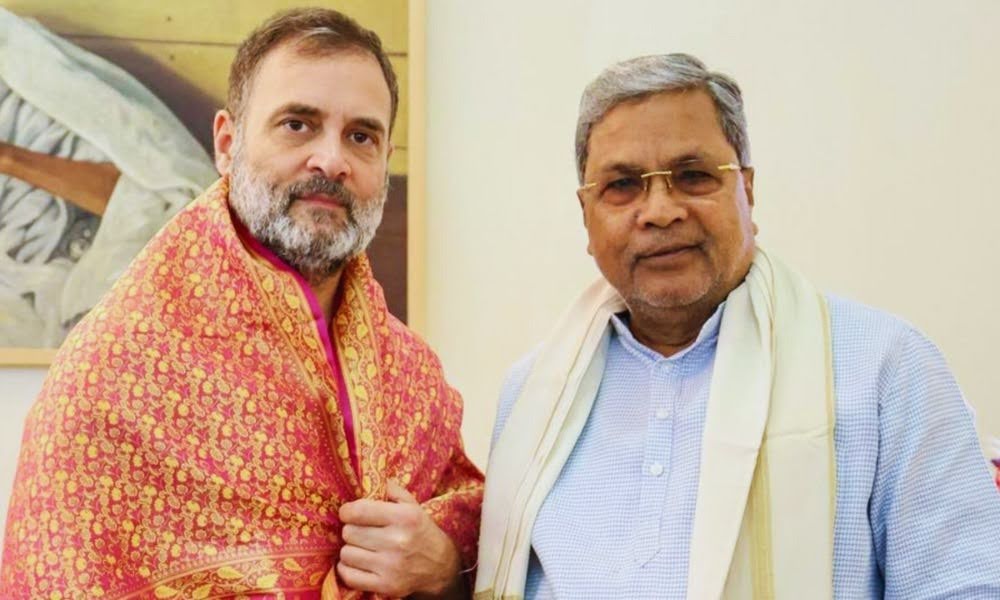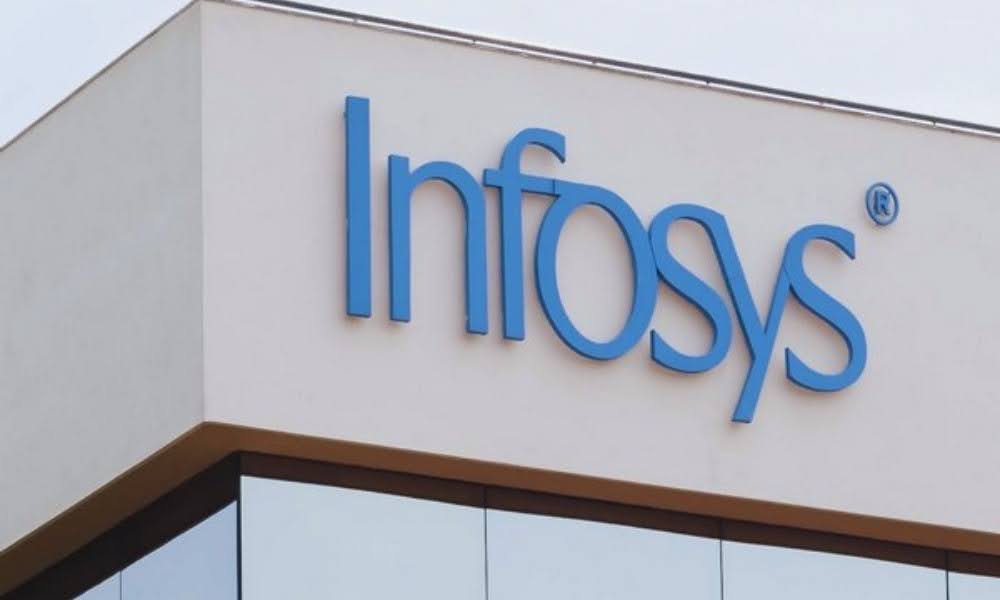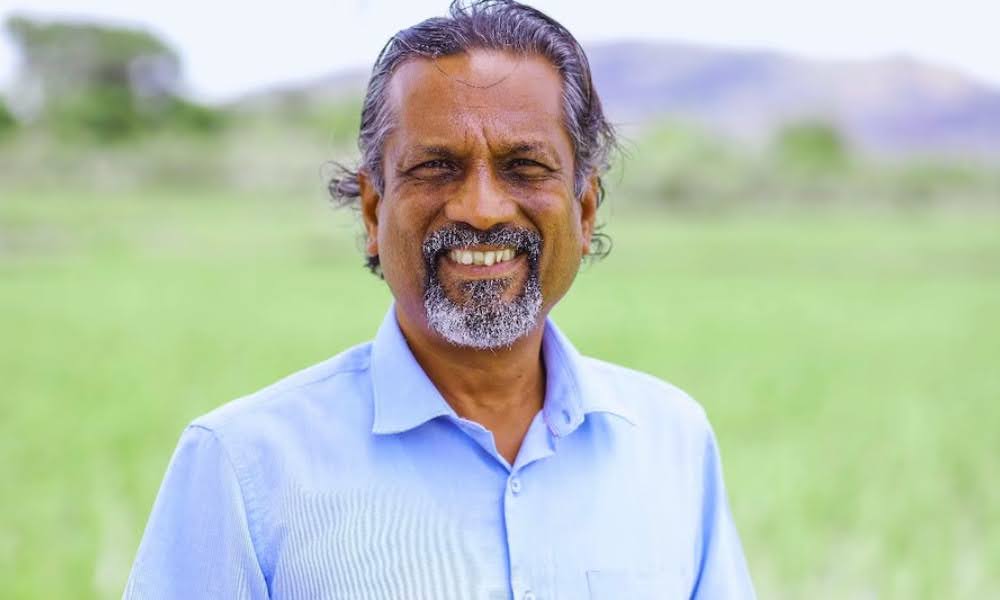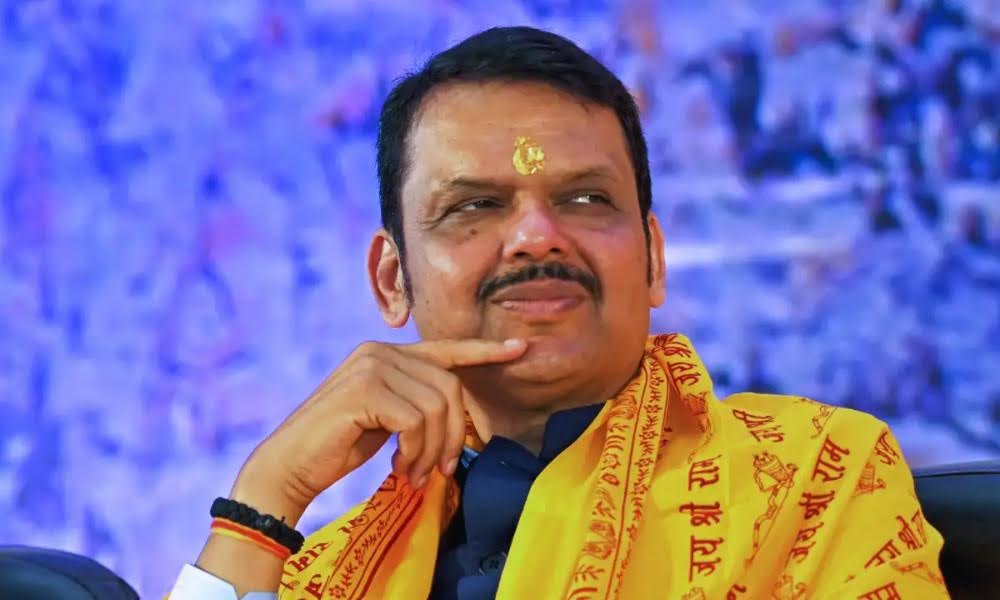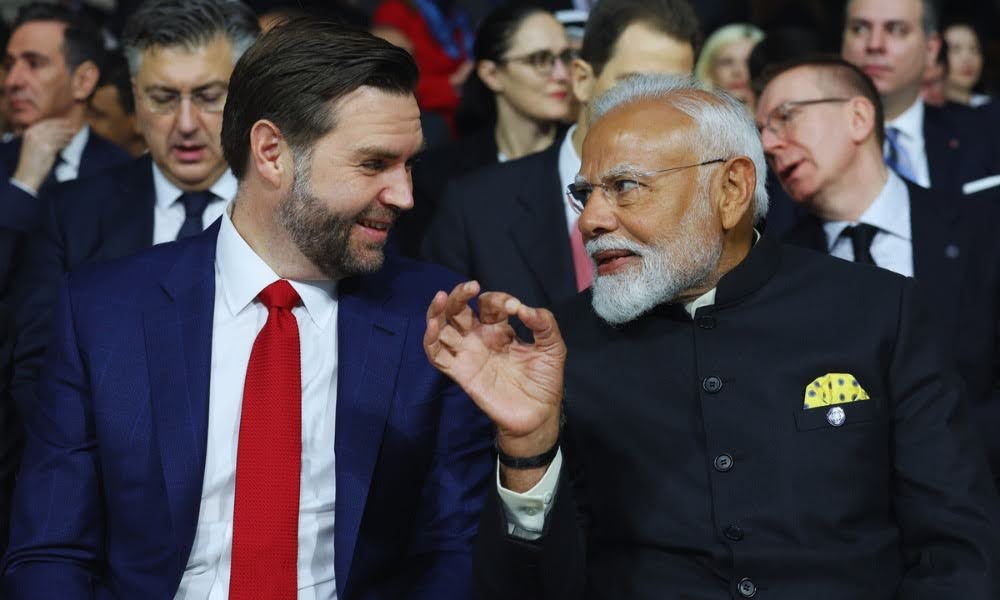BJP’s Milkipur By-Election Win Strengthens Hold Over Ayodhya Amid Hindutva Push
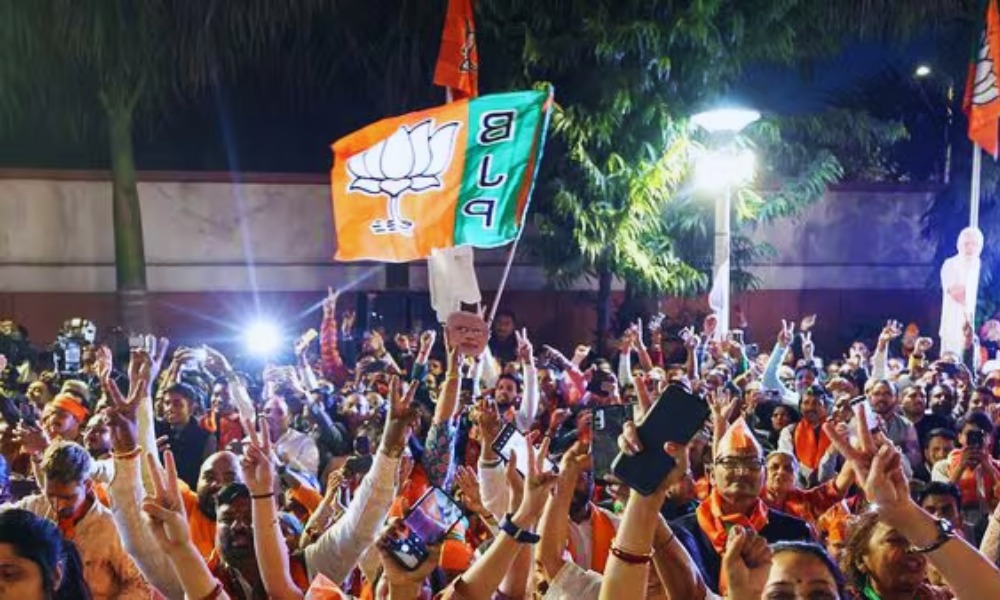
The Milkipur by-election in Uttar Pradesh was not just about securing a legislative assembly seat; it was a battle for political dominance over Ayodhya, a stronghold of the Bharatiya Janata Party’s (BJP) Hindutva narrative.
On February 8, BJP candidate Chandrabhanu Paswan secured a commanding victory over Samajwadi Party (SP) rival Ajit Prasad by a margin of 61,710 votes.
The Congress and Bahujan Samaj Party (BSP), sensing unfavorable odds, opted out of the contest.
BJP Reclaims Lost Ground
For the BJP, this victory marks a comeback after its shocking defeat in the 2024 Lok Sabha elections from the Faizabad parliamentary seat, under which Ayodhya falls.
That loss, which occurred despite the grand inauguration of the Ram Temple, was seen as a symbolic setback.
Winning Milkipur helps the BJP regain its narrative in Ayodhya, reinforcing Hindutva as a crucial electoral plank.
The bypoll was also a test of Uttar Pradesh Chief Minister Yogi Adityanath’s leadership.
The BJP’s tally in the 2024 general elections had dropped from 62 seats in 2019 to 33, raising concerns about Adityanath’s reliance on bureaucracy over grassroots workers.
His aggressive campaign in Milkipur, including over 20 visits to Ayodhya in six months, showcases his efforts to reclaim the BJP’s standing in the state.
Although the victory does not impact the BJP’s majority in the Uttar Pradesh assembly—where it holds 258 seats out of 403—it serves to consolidate Adityanath’s position ahead of the 2027 assembly elections.
BJP’s Campaign Strategy and Response
BJP spokesperson Rakesh Tripathi, in an interview with India Today, admitted that the party had displayed overconfidence in the general elections but worked hard this time to highlight the achievements of the Modi-Yogi government.
“BJP workers put in tremendous effort, successfully reaching out to the people with the achievements of Prime Minister Narendra Modi and Chief Minister Yogi Adityanath. The way the SP projected their [Faizabad] MP as the ‘Raja of Ayodhya,’ the people rejected that arrogance. In the Lok Sabha elections, we were overconfident and learned our lessons. This time, we worked hard, and we will continue to do so till the assembly polls in 2027,” Tripathi said.
Mandal vs Hindutva: The Caste Factor in Milkipur
The Milkipur election was largely a contest for the Dalit and Other Backward Classes (OBCs) vote. Both BJP and SP fielded candidates from the Pasi community, which has a significant presence in the constituency.
- SP’s traditional vote bank: Yadavs (15% of UP’s population) and Muslims (8%)
- SP’s 2024 strategy: Consolidate 27% Dalit voters by pushing the ‘Constitution in Danger’ narrative
The BJP countered this by aggressively wooing Dalit voters, leveraging welfare schemes and local Dalit leaders like Pushpendra Pasi.
The BJP’s ability to make inroads into the Dalit vote base suggests an evolving caste coalition that could weaken the SP’s hold in the 2027 assembly elections.
Development and Hindutva: BJP’s Winning Formula
While the BJP maintained its Hindutva narrative, it also emphasized Ayodhya’s infrastructural development, portraying the region as a model of governance.
The win in Milkipur underscores that combining religious appeal with development initiatives continues to resonate with voters.
Akhilesh Yadav’s Response and SP’s Claims
SP President Akhilesh Yadav dismissed the election results, claiming that the BJP manipulated the electoral system.
“The BJP cannot face the growing power of PDA (Pichda, Dalit, Minority) in terms of votes, which is why it tries to win by misusing the electoral system. The officials who committed electoral fraud will be punished—if not today, then tomorrow. The truth will come out,” he posted on X.
He also alleged that the Milkipur by-election was postponed to help the BJP gain an unfair advantage.
What This Means for 2027 Assembly Elections
The Milkipur bypoll results serve as an early indicator of voter sentiment ahead of the 2027 assembly elections.
If the BJP had lost, it would have signaled a weakening of its Hindutva base and a consolidation of OBC and Muslim votes behind the SP.
However, the BJP’s victory suggests that its strategy of blending Hindutva with targeted caste outreach and development initiatives is working.
For the SP, the loss raises questions about its ability to rely solely on Mandal politics without offering a broader, sustainable narrative.
Key Takeaways from the Milkipur Bypoll
- BJP Victory Margin: 61,710 votes
- BJP Candidate: Chandrabhanu Paswan (146,397 votes)
- SP Candidate: Ajeet Prasad (84,687 votes)
- Significance: Restores BJP’s confidence after the Faizabad Lok Sabha defeat
- BJP’s Strategy: Blending Hindutva, caste outreach, and development
The Milkipur by-election was more than just a regional contest; it was a political test for the BJP and CM Yogi Adityanath.
The victory has reasserted Hindutva’s relevance, validated BJP’s caste outreach strategy, and set the stage for the 2027 Uttar Pradesh assembly elections.
For the Samajwadi Party, this loss underscores the need for a stronger, more inclusive strategy beyond Mandal politics.
The battle for Uttar Pradesh is far from over, but the BJP has clearly taken an early lead in shaping the political narrative for 2027.




